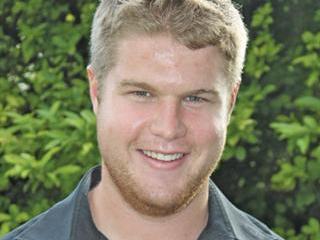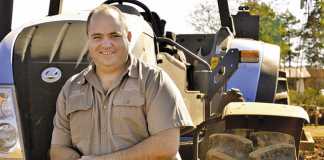
Who is in charge of organising the Spring Show?
Our company, Complete Exhibitions was appointed to organise the show in early 2011 and is contracted by the Tshwabac Events Centre to run the show in its entirety. We consult with the various livestock committees on what they expect from us and then arrange the show accordingly.
Was there political pressure to change the name from the Pretoria Show to the Tshwane Show?
There was pressure from the Tshwane Metro Council to change the name, but we can’t speak for the organisers who were running the show at the time. When the name was changed, AfriForum boycotted the show, hurting it a lot. So when we came on board the first thing we decided to do was take the show out of the political arena it had been operating in for a number of years.
There was pressure from our previous exhibitors to change the name back to the Pretoria Show, but I think that would have been a short-term solution because the show had already lost its appeal for the target market. We needed to rebrand and go forward, not backward. We decided on the name Spring Show because the show is held in spring and it works well as the Lente Skou in Afrikaans. Tshwabac approved the name change. It realised we had to do something to revive the show, and AfriForum has since come back on board.
How successful was last year’s show?
By the time we were appointed in 2011 it was already a bit late in the year to make any changes. It was difficult and I wouldn’t say it was a great show. At the end of the show we decided it needed focus, because the show has lost direction over the last 10 years. It appealed to everyone but was interesting to no one. We decided to either focus on entertainment and flea markets or on agriculture. Our research showed that the latter was the most viable. Without the Spring Show there would be no premier agricultural show for the northern part of SA.
Was it difficult to convince exhibitors and farmers to put their faith back in the show?
Yes. We had to drive around the country to meet people face-to-face in order to convince them that we were serious about making a success of the show. We were open and honest which they appreciated and our biggest critics have now become very positive. If there were only one or two bad years then the situation would not have been as tense.
But the show has not been performing for a long time and the negative perception that people had about it became a reality. The only way to overcome this was to make drastic changes. The Boer Goat and Dorper shows have already been confirmed and the cattle and equestrian committees have signed. These people have supported the show for the last 20 years, without receiving much support in return. Now we are 100% behind them.
The agricultural sponsors were going to pull out last year because the show’s market no longer appealed to them. But about 80% of the sponsors are back and some have even increased their involvement in the show.
How will this year’s show differ from last year’s?
There will be no flea market or fun park, because it doesn’t appeal to our market. This space will now be used for goats and sheep. Most exhibitors will be agriculture orientated. The exhibition hall will now be used for animal exhibits. This has made the sheep and goat farmers very happy as they are no longer dependent on the weather as was the case previously when they were out in the open.
The event will subsequently be more upmarket. On the last day of the show we will have an open event for all exhibitors and breeders with awards for each category. Awards were previously handled by breed representatives, but doing it this way gives the farmer more recognition. It also ensures that we end the show on a high note.
Does the show cater for small-scale farmers?
We are offering seminar sessions that will discuss topics of interest to all farmers, also with a focus on small-scale and emerging farmers. This will include courses on feeding techniques, using implements and getting financing. One of the courses is for rope handlers who lead animals around the ring.
The handlers will be here so it is an ideal time to train them. We have put together a ‘youth in agriculture’ programme that will see the youth competing against commercial farmers in carcass competitions. We have secured a sponsor for 60 lambs which will be given to three agricultural schools to prepare for slaughter. Once the carcasses are sold, the money for the lambs will be paid back and the profit will go to the school, so the project funds itself and the students get an ideal opportunity to learn from commercial farmers.
What does the future hold for agricultural shows? Will the smaller shows fall away as the farmer population and disposable incomes dwindle?
Yes, farmers and sponsors will pick out bigger shows within a region. In the future there will be a few premier shows that will represent the market. Our aim is to complement the other shows, not compete with them. As far as the Spring Show is concerned, the livestock aspect sets it apart.
Farmers will always need to attend an agricultural show for the most important aspect of getting recognition for their studs and businesses. One farmer told me that the value of his bull had increased threefold after bringing it to the show.
Contact Robert Walker at [email protected]













